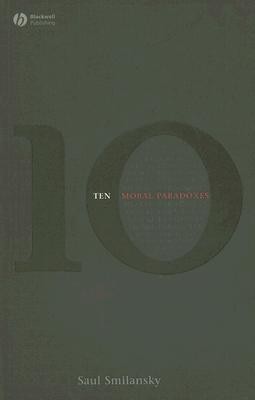| 10 Moral Paradoxes Contributor(s): Smilansky, Saul (Author) |
|
 |
ISBN: 140516087X ISBN-13: 9781405160872 Publisher: Wiley-Blackwell OUR PRICE: $35.10 Product Type: Paperback - Other Formats Published: June 2007 Annotation: If a severe misfortune makes your life better, was it unfortunate? Could it be that 500f competent medical doctors ought promptly to retire? Might a justice system threaten with unjust punishment, to avert the need for punishment? Could things become too good, morally? Can terrorists morally complain if innocent people they care about are harmed? The importance of paradox in the study of philosophy, from metaphysics to logic, is evident from the abundant literature on the subject. But until now, very little critical study of paradox within ethics has been available. The first of its kind, this cutting edge work of philosophical ethics makes a powerful case for the centrality of moral paradox. Presenting ten diverse and original moral paradoxes, the book challenges some of our deepest moral views. This innovative volume also asks whether the existence of moral paradox is damaging or beneficial, and explores more generally what paradoxicality can teach us about morality and life. Concise and provocative, "10 Moral Paradoxes" presents analytic moral philosophy in an engaging way; posing new questions, proposing possible solutions, and challenging the reader to wrestle with the paradoxes. |
| Additional Information |
| BISAC Categories: - Philosophy | Ethics & Moral Philosophy |
| Dewey: 170 |
| LCCN: 2006028203 |
| Physical Information: 0.48" H x 5.51" W x 8.47" (0.46 lbs) 160 pages |
| Descriptions, Reviews, Etc. |
| Publisher Description: Presenting ten diverse and original moral paradoxes, this cutting edge work of philosophical ethics makes a focused, concrete case for the centrality of paradoxes within morality.
|